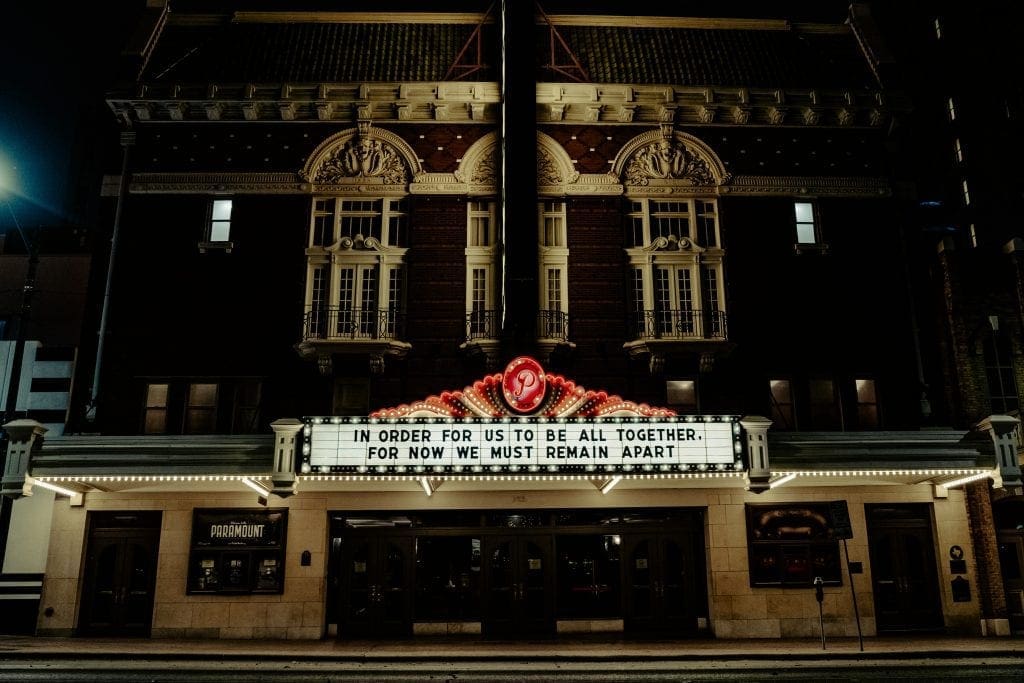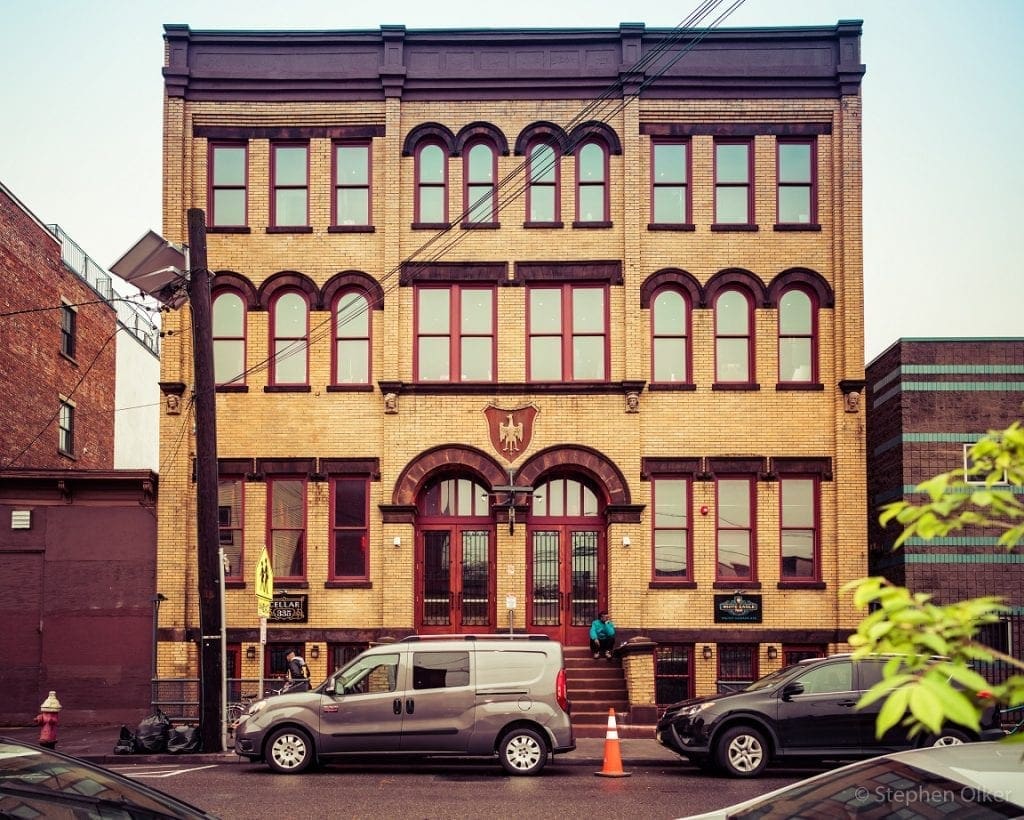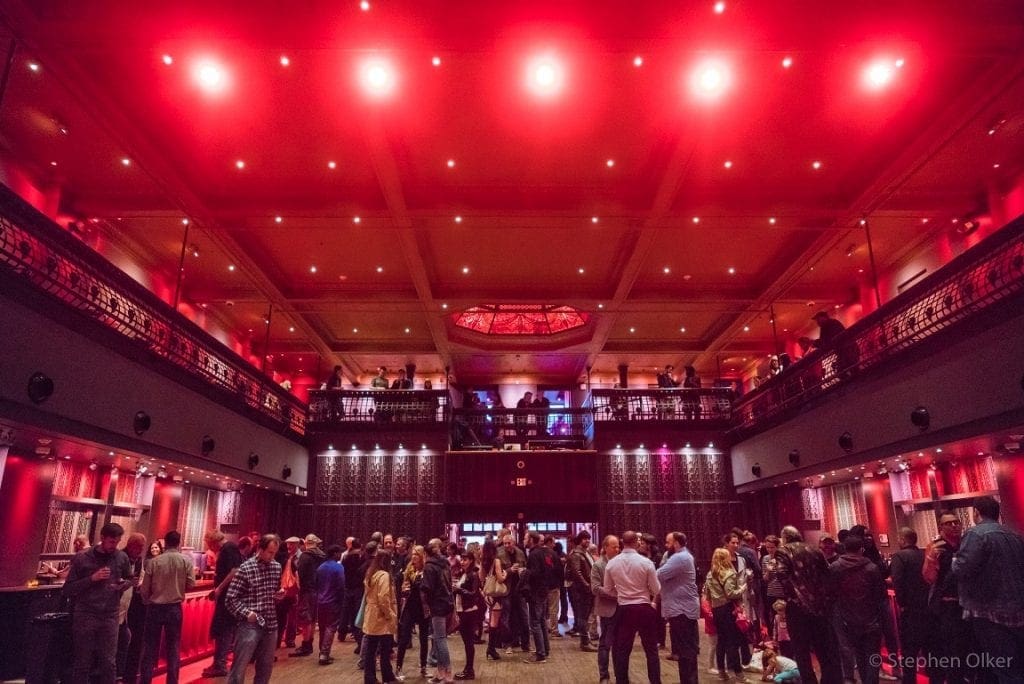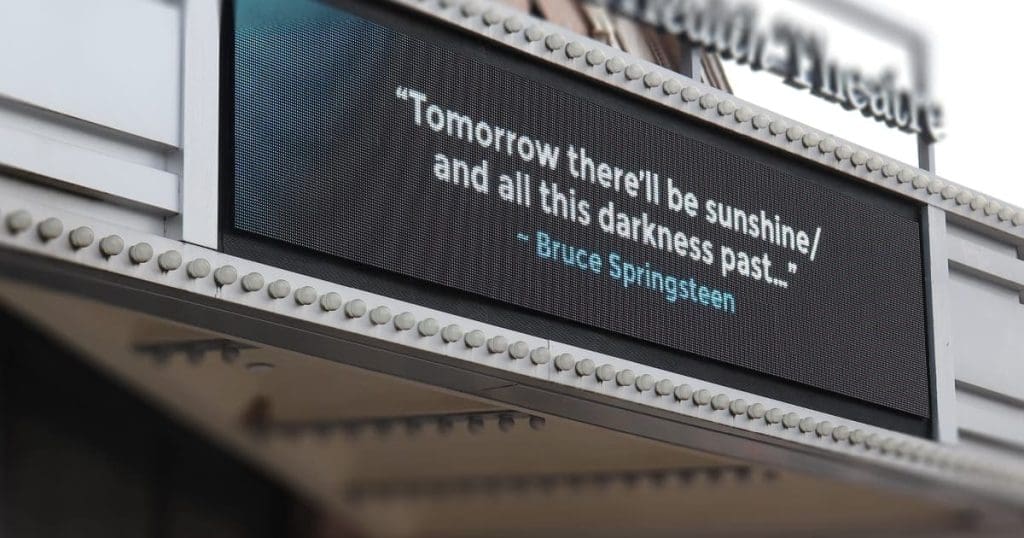On Monmouth Street in Red Bank, New Jersey, Count Basie Center for the Arts has left their marquee lit. In optimistic gleaming white and blue letters shines a line from The Boss: “Tomorrow they’ll be sunshine/And all this darkness past.” Across the nation, hundreds of intimate venues just like the Basie—boarded but hopeful—are looking for a brighter tomorrow for NJ in the Save Our Stages Act.
The Save Our Stages Act was introduced to Congress late July by US Senators, Amy Klobuchar, and John Cornyn. If it’s passed, it would provide a life raft of sorts for struggling venues. The $10 billion grant program allows the Small Business Association (SBA) to distribute several months of financial support to intimate theaters struggling from the restrictions put on them by Covid-19. The assistance would be a tremendous relief for New Jersey’s venue owners and promoters desperately trying to keep their heads above water.
According to a news release directly from Klobuchar’s website, the Save Our Stages Act would allow the association to provide “grants for eligible venues equal to the lesser of either 45 percent of operations costs from the calendar year 2019 or $12 million.” The government funding would make it possible for these spaces to pay urgent expenses such as rent, utilities, and employee payroll. The program also suggests additional support if necessary and if funding remains available.
New Jersey Is Running Out Of Time

If the Save Our Stages Act fails, New Jersey venue owners won’t be able to sustain their businesses. In a recent estimate, nearly 100 percent of venues would each lose close to 10 million dollars, if ticket sales fail to resume by 2021. Since the shutdown began, there has been no way to bring in new revenue. The federal assistance could be the only way live entertainment can survive. The Save Our Stages Act is endorsed by the National Independent Venue Association (NIVA) and the National Independent Talent Organization (NITO). Founded this year, both organizations aim to preserve the future of independently owned venues.
It’s been a waiting game for nearly all of New Jersey’s venue owners. While many hope for the brighter tomorrow Bruce Springsteen once envisioned, without the grant program, their hands are tied. The lobby to Red Bank’s historical theater has been dark for almost six months. Its newly added second theater has yet to be opened to the public. The customary lines of patrons wrapped around the Starland Ballroom in Sayreville feel far away. And, so do the neon lights above the steps of Jersey City’s White Eagle Hall that often illuminated their own crowds on show nights.

What Could Happen If the Save Our Stages Act Doesn’t Pass in NJ
Governor Phil Murphy quickly suspended live entertainment after Covid-19 hit the state. And, it will likely be the last to open when (and if) it’s ever safe to do so. Most of New Jersey’s concert halls have already canceled 60+ of their upcoming shows and furloughed a majority of their employees. In April, Meg Donoghue Kelly put the Saint up for sale. Another historic venue that had no way to pay its expenses. Thankfully, the Asbury community and local investors were able to save The Saint but, others might not be so lucky. This is why the Save Our Stages Act remains crucial, especially in the upcoming weeks.
Both the local economy and surrounding communities would feel a tremendous loss without live entertainment.
What This Means For Live Music
It would impact jobs. There would be no need for stage crews, no lighting or sound, no box office representatives, or ticket takers. There would be no need for security, ticket agencies, or tour managers. Local businesses would suffer as well. The restaurants and bars in the surrounding areas would lose their concert crowds and the revenue that follows. Even car rental services would feel the impact.

And then there’s the entertainment itself. Most well-known musicians and comedians all got their start from playing intimate concert halls. No one begins their career at Madison Square Garden. Without these stages, we lose the ability to discover new sounds and ideas before they echo out into the rest of the world. We lose the ability to feel the vibrations of guitar riffs reverberating down Asbury Park’s Boardwalk in mid-July. We lose the communal emotions in a room of strangers when the lights dim at the start of a show and those first chords ring out. All the connections, the art, and the opportunities that independently owned venues have given to us would be gone.
A Positive Note
In the meantime, Count Basie Center for the Arts remains positive while continuing to find ways to swim against the tide. They’ve already hosted a handful of drive-in concerts at Monmouth Racetrack in Oceanport, and just recently, added a dine-in concert experience at the Blu Grotto Ristorante. Two outdoor, six-feet apart, ways to enjoy live entertainment while we wait for better days.
The first artist to try it out was Southside Johnny, a native hero to New Jersey.
It was different, but also the same. The patrons stayed in their cars—spaced a respective parking space apart—and honked their horns instead of clapping. Depending on where you were in the lot, it was easier to hear the show on the radio, rather than through an open window.
But it was live music. And it was quite evident that it was missed. A woman listening from an open sunroof had tears streaming from her eyes. Another was dancing on the hood of a car.
A man in the front row was holding up a sign that said, “It’s been a long time.” And it has.
But, if the Save Our Stages Act is passed for NJ, maybe we’ll all see each other soon.
An aspiring writer and journalist based in Central Jersey. Loves poetry, vinyl, coffee, Rolling Stone magazines, and her dog, Bo.
- Jessica McLaughlinhttps://thedigestonline.com/author/jmclaughlin/
- Jessica McLaughlinhttps://thedigestonline.com/author/jmclaughlin/
- Jessica McLaughlinhttps://thedigestonline.com/author/jmclaughlin/
- Jessica McLaughlinhttps://thedigestonline.com/author/jmclaughlin/


